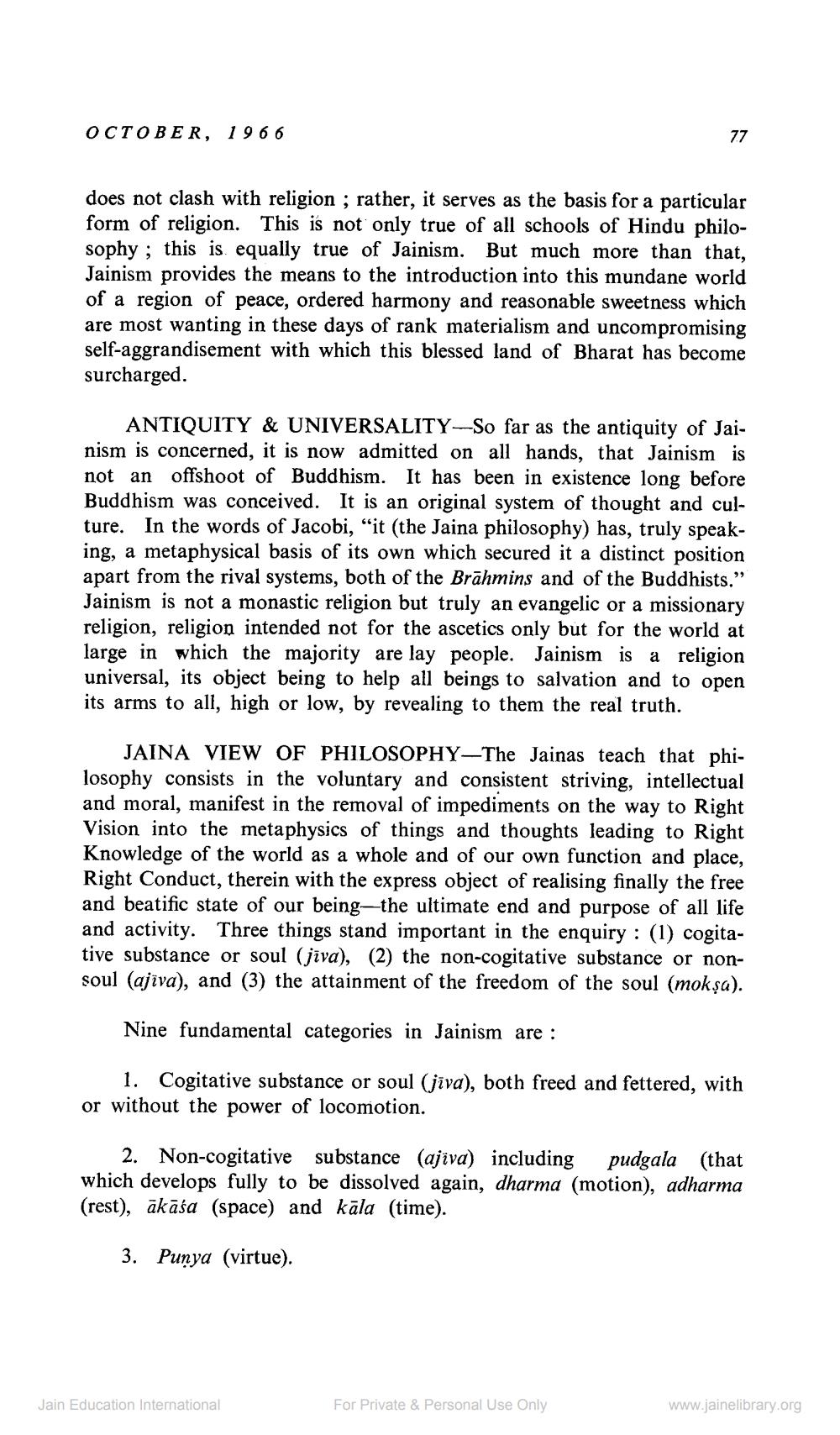________________
OCTOBER, 1966
does not clash with religion; rather, it serves as the basis for a particular form of religion. This is not only true of all schools of Hindu philosophy; this is equally true of Jainism. But much more than that, Jainism provides the means to the introduction into this mundane world of a region of peace, ordered harmony and reasonable sweetness which are most wanting in these days of rank materialism and uncompromising self-aggrandisement with which this blessed land of Bharat has become surcharged.
7.7
ANTIQUITY & UNIVERSALITY-So far as the antiquity of Jainism is concerned, it is now admitted on all hands, that Jainism is not an offshoot of Buddhism. It has been in existence long before Buddhism was conceived. It is an original system of thought and culture. In the words of Jacobi, "it (the Jaina philosophy) has, truly speaking, a metaphysical basis of its own which secured it a distinct position apart from the rival systems, both of the Brahmins and of the Buddhists." Jainism is not a monastic religion but truly an evangelic or a missionary religion, religion intended not for the ascetics only but for the world at large in which the majority are lay people. Jainism is a religion universal, its object being to help all beings to salvation and to open its arms to all, high or low, by revealing to them the real truth.
JAINA VIEW OF PHILOSOPHY-The Jainas teach that philosophy consists in the voluntary and consistent striving, intellectual and moral, manifest in the removal of impediments on the way to Right Vision into the metaphysics of things and thoughts leading to Right Knowledge of the world as a whole and of our own function and place, Right Conduct, therein with the express object of realising finally the free and beatific state of our being-the ultimate end and purpose of all life and activity. Three things stand important in the enquiry: (1) cogitative substance or soul (jiva), (2) the non-cogitative substance or nonsoul (ajiva), and (3) the attainment of the freedom of the soul (mokşa).
Nine fundamental categories in Jainism are :
1. Cogitative substance or soul (jiva), both freed and fettered, with or without the power of locomotion.
2. Non-cogitative substance (ajiva) including pudgala (that which develops fully to be dissolved again, dharma (motion), adharma (rest), ākāśa (space) and kāla (time).
3. Punya (virtue).
Jain Education International
For Private & Personal Use Only
www.jainelibrary.org




